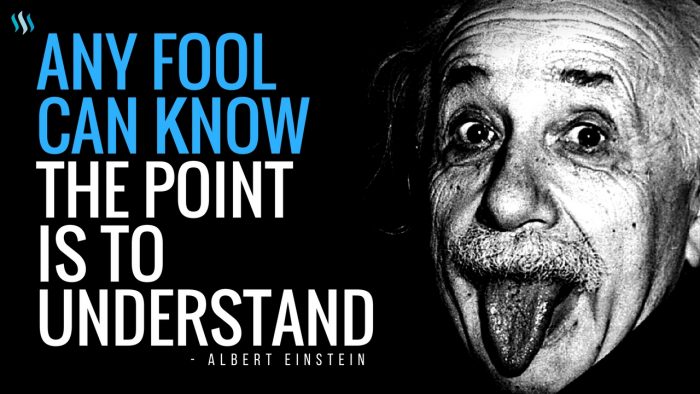“When you don’t have anything to say, whatever gets said is wisdom”
After much thought, the world has come to a place where it has begun to realize how puny and deceptive a thought is. Thought is not inconsequential though. It sets us into a momentum for action. It becomes the cause to a desired effect. Whatever can be thought up, is already there in many ways. Nothing entirely new has ever been thought. For example, if an apple falls upon your head and you wonder about the phenomenon with utmost profundity and clarity, you can arrive at the science of gravity, which is already. The same goes for artificial intelligence, hyperloop, cryptocurrency, virtual reality, and the like. These are expressions of thought which have been arrived at through intellectual means based on the existing reality of the human mind.
Because a mind can think in a certain way feeding upon a certain volume of data, it becomes possible to device a mechanism to do that for us. Because it can experience a dream in ways more real than in wakefulness, it can program a simulation more overwhelming than our present external perceptions. Because it can deduce a structure to the inter-connectivity of reality, it can write a computer code to mimic this into a platform for hosting and sharing information. With all this, human thought is capable of many works of art. A certain sense, or intelligence irrespective of this thinking, helps in identifying how there is no end to this or more than this to life.
Life is who we are. Who we are is not what we think of ourselves or of life itself. One is capable of understanding that even though our thought can play a pivotal role is journeying through the myriad nature of human experience, it is only an outcrop of the fundamentals governing this possibility. The fundamentals are not to be thought of or done anything about. Thought can be used, however, to create a psychological ambiance which makes one open and willing enough to see the limitations of thought process in order to become aware of its compulsive tendencies. Once one begins to know of these compulsions, it is obvious we are not them, but how dominant they may have been in predetermining a variety of aspects as to who we think we are.
So, if in truth we are not who we think we are, but in spite of it, what is it that must be done about it? The first is to be not associating any significance to thought. This enables one to use thoughts more consciously as an instrument for specific purposes without being muddled by their compulsive and conflicting trips. The second is to trust the boundlessness of ignorance. If one is capable of developing a trustful relationship with their limited knowledge, the capabilities and freedom that comes from being in touch with an intelligence that is beyond what can be thought of, is not just a fanciful idea. The third is to be secure and stable about not having anything to think. Upon closer evaluation one can realize that these are moments to be perceptive and receptive to the nature of who we are, without needing to formulate a thought around it.
The quote above will make sense if you don’t think about it.
Yuvraj Goswami is the author of No Point Talking. available on amazon. Excerpts are on www.elefemel.com and @nopointtalking on Instagram.







Read 0 comments and reply